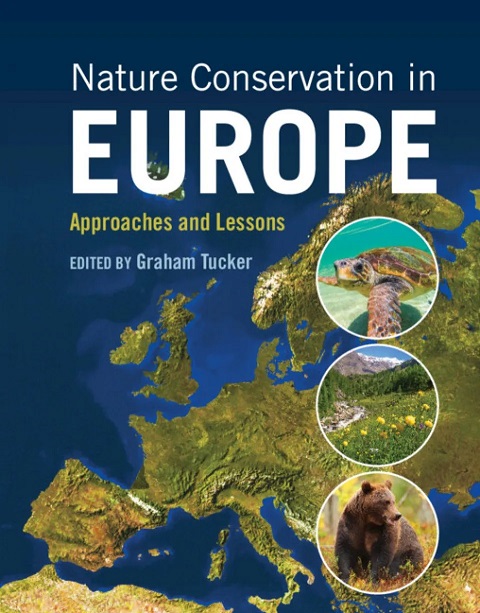
This is not a cheap book, nor is it a small book, but it is a very useful and impressive book. It consists of fairly standardised accounts of the approaches to and the state of nature conservation across 26 countries, 25 of which are still members of the European Union (Luxembourg and Malta don’t have their own chapters). These are written by 50 in-country expert conservationists, many with high credentials and reputations both in their own countries and across the continent. There are five introductory or concluding chapters written by the editor, sometimes with others.
There are 700 large pages of clearly written and pretty authoritative text here covering the history and present of the effectiveness and ineffectiveness of nature conservation across much of our highly populated, relatively well-studied and financially rich continent. Chapter 5, which precedes the country accounts, and the last paragraphs of each country account bring together an assessment of what works and what doesn’t.
It would be difficult to overstate the monumental nature of this work – it is the type of work that one would wish to exist but blanche at even the remote thought of producing oneself. It would be outside the scope of most and o the editor deserves much gratitude and praise for getting such a volume to a finish. I shiver to think of the work involved.
Of course one is likely to turn to one’s own nation to see what it says – and I did. My summary of the book’s summary would be that the UK has been a leader in thinking about nature conservation but can no longer really claim to be a leader in doing nature conservation. There are too many areas where we, especially our governments, have fallen a long way short of what was needed, or even what was suggested, or more recently what was promised. Funding has been inadequate and enforcement too. Government antipathy to regulation has limited progress and it’s a good job we have some decent wildlife charities to fill some of the gaps that exist. I agree with this analysis, indeed you’ll find many of the same things said in Reflections.
When one turns to the overall conclusion across the whole EU then one finds that weak legislation which is weakly enforced and a lack of funding are highlighted, as is the need for motivated people.
Then I turned to particular countries, mostly ones about which I knew very little, and dived into what they had done, and where they had succeeded and failed. This is fascinating. Any international conservationist visiting one of the countries covered should take an electronic copy of this book and read it on the journey to that country in order to arrive better informed about how things work. I wish such a thing had existed when I did a bit of flitting around Europe visiting BirdLife International partners and EU institutions.
This is most certainly a reference book, not a rattling good yarn, and it will mostly be used by conservation professionals, but, actually, the tale it tells is gripping and important.
The cover? Yes, good. I’d give it 8/10.
Nature Conservation in Europe: approaches and lessons, edited by Graham Tucker, is published by Cambridge University Press.
[registration_form]